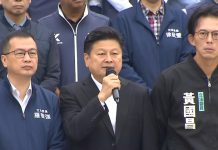BEIJING: One Friday afternoon, Li Jingwen sat watching xilu bangzi, a type of opera from Haixing county in Hebei province, in an activity room at school, enthralled by the theatrical nature of its imagery and powerful rhythms.
The 9-year-old from Shangde Primary School in Xiangfang town was watching a scene from Huanghelou, or Yellow Crane Pavilion, which tells stories about the Kingdom of Wu during the Three Kingdoms Period (220-280).
“I couldn’t understand most of the lines, but the expressions of the performers and their makeup were so dramatic and interesting,” she said, adding that she wanted to learn to sing some of the opera herself once she grows up.
The art form is being performed at primary schools to teach students about its beauty, much as is done with many other examples of intangible cultural heritage.
“The introduction of intangible cultural heritage to schools allows students to directly experience the charm of traditional Chinese culture,” said Xu Yongxing, head of the county’s education bureau, adding that this is a good way to spread traditional culture and increase the likelihood of it being passed on to future generations.
Du Zhonghua, an opera performer who is also an inheritor of the art, said teaching intangible cultural heritage is critical.
“It is an important part of traditional culture. Students are able to enjoy the beauty of traditional culture through it,” Du said. Han Kuitian, a teacher at the primary school, agreed.
“Young people like my students can be influenced by traditional culture only by getting to know a little bit of it,” Han said.
According to Han, performances of xilu bangzi were introduced to the curriculum in 2017. Inheritors of the cultural heritage come to the school every Wednesday to put on different opera performances for students.
In addition to opera, other examples of heritage, including paper-cutting, martial arts studies and clay sculpting, have also been introduced to the curricula at schools in Haixing.
At Yifu Primary School, there’s a studio for making clay sculptures, while at Guoqiao Primary School, there’s a workroom for practicing martial arts.
According to Xu, some performances and teaching activities are also held during the summer and winter breaks to give students something interesting to do during the holidays.
“This not only makes their lives more interesting, but also enhances cultural confidence and encourages the passing on and protection of intangible cultural heritage,” Xu said. –The Daily Mail-China Daily news exchange item






